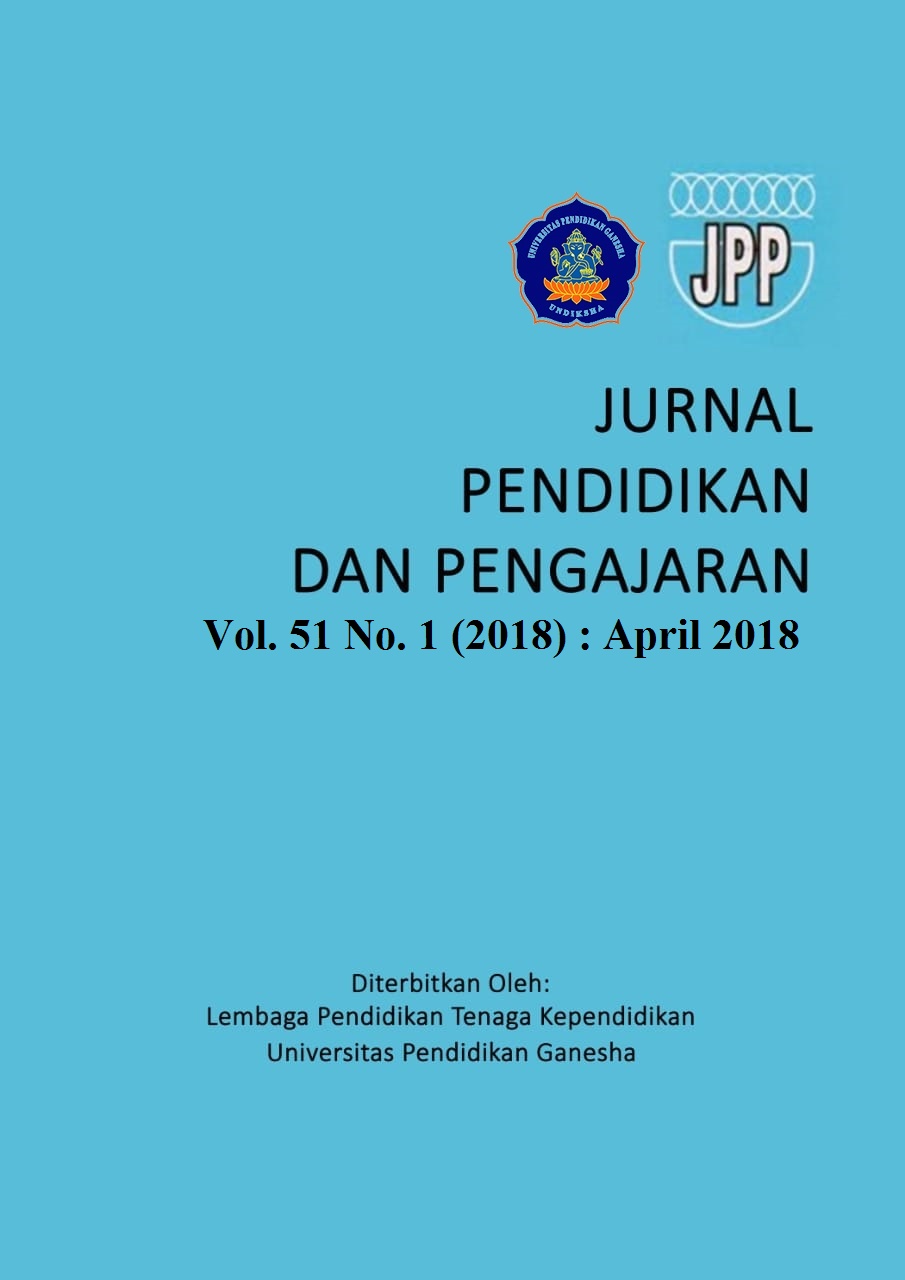Evaluation study of mathematics education master program curriculum
DOI:
https://doi.org/10.23887/jpp.v51i1.12953Kata Kunci:
curriculum, context, input, process and product models, evaluation researchAbstrak
Curriculum is a very important component in implementing various programs. Therefore, it should be developed with the principles of relevance, effectiveness, efficiency, continuity, and flexibility. The objective of this research is to explore the incompatibility and compatibility of the Mathematics Education Master Program Curriculum with existing standards. This type of research is qualitative with evaluation method. Documents, alumni, students, and stakeholders (principal, head of university, head of Youth and Sports Office) are the sources of data used in this study. Data are collected using documentation study method, questionnaire, focus group discussion, with document filling form instrument, questionnaire, and record form. Research data is analyzed descriptively. The results of the research are: (1) Context, Input, Process, and Product models can be used to analyze the curriculum incompatibility that is implemented with existing standards or guidelines, (2) there is incompatibility between the courses given with the profile of graduates as a researcher, and the learning process is conducted with the characteristics of the learning process according to National Standards of Higher Education (NSHE), and (3) there is compatibility between: the courses given with the profile of educators and professionals; profile of graduatess with level 8 of the National Qualification Framework of Indonesian (NQFI); lecturers’ condition, the micro-level curriculum, facilities and infrastructures, and the number of students with the existing standards; and quality of graduates from aspect of Grade Point Average (GPA), study period, waiting period, and graduate performance with expectation
Unduhan
Diterbitkan
Cara Mengutip
Terbitan
Bagian
Lisensi
Authors who publish with Jurnal Pendidikan dan Pengajaran agree to the following terms:- Authors retain copyright and grant the journal the right of first publication with the work simultaneously licensed under a Creative Commons Attribution License (CC BY-SA 4.0) that allows others to share the work with an acknowledgment of the work's authorship and initial publication in this journal
- Authors are able to enter into separate, additional contractual arrangements for the non-exclusive distribution of the journal's published version of the work (e.g., post it to an institutional repository or publish it in a book), with an acknowledgment of its initial publication in this journal.
- Authors are permitted and encouraged to post their work online (e.g., in institutional repositories or on their website) prior to and during the submission process, as it can lead to productive exchanges, as well as earlier and greater citation of published work. (See The Effect of Open Access)





